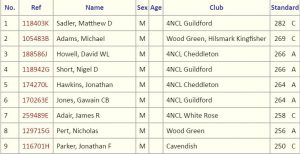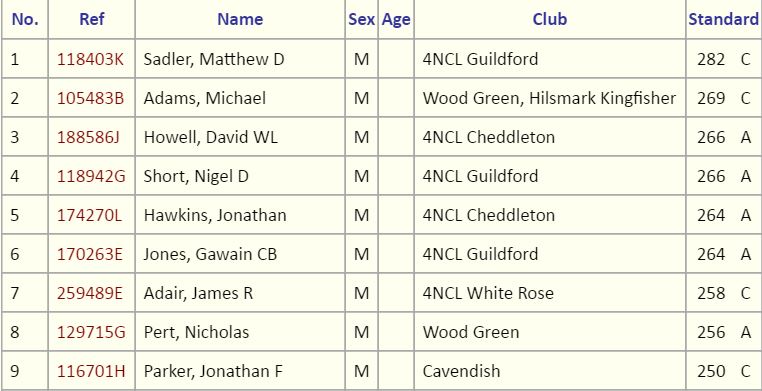As a very young chess player, my ECF grade (or BCF grade as it was then) was a matter of enormous pride. I still remember the thrill of receiving a grading list through the post and the enormous disappointment of a grade lower than I had expected! (it happened twice) Bizarrely enough I still remember the first BCF 6 grades I achieved:
| Age | Grade |
| 8 | 128 |
| 9 | 141 |
| 10 | 169 |
| 11 | 184 |
| 12 | 211 |
| 13 | 221 |
After that, my memory becomes fuzzy which isn’t too surprising as I achieved my first ELO rating (2385) at the age of 13. After you’ve tasted an ELO rating, your BCF grade just doesn’t cut it anymore: reaching a 2600 ELO is all that matters.
Until now! I saw that my BCF grade of 282 puts me on the #1 spot in the UK. Just for one day, I’ll forget my previous indifference and pretend that this is the one that counts!

Congratulations also to my “Chess for Life” co-author Natasha Regan who gained 10 points to move to 188! Looks like working together on the book was good for our ratings!




Hi Matthew,
Your comment about FIDE ratings being more important certainly applies at your level and maybe for ELO > 2300 but not for English players at my level (ECF 181). At my level, FIDE ratings can be very inaccurate because most of our games are ECF graded but not FIDE rated.
Still, congratulations on your achievement 🙂 I also found the identity of the one player above Magnus Carlsen on the ECF grading list quite amusing!
More seriously, thank you for sharing so much of your knowledge on your blog. I’m sure I’ll benefit if I can make the time to study it more thoroughly.
Hi Eric, thanks for your comments! I agree with you totally – the grading that is the most important to you is the one that reflects the majority of your games. If you rarely play FIDE-rated events, then your ELO-rating will not be a true indication of your playing strength. Glad you enjoy the blog! Best Wishes, Matthew